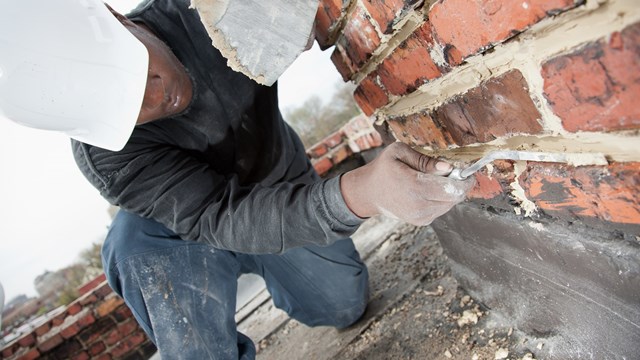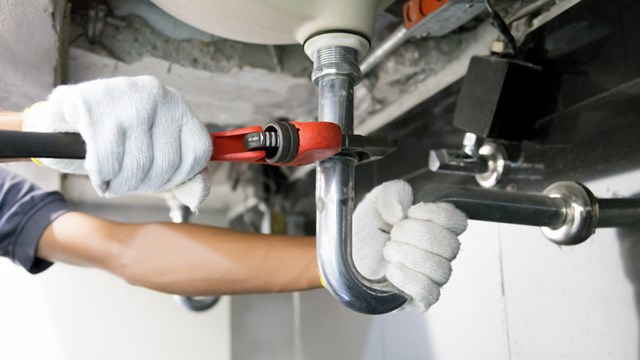
Don't be fooled by the scenery; property management in Florida is not a day at the beach. While managers in Boston or Chicago may look longingly at their colleagues' sunny southern properties, the overall job description doesn’t really change much with geography. The process of minimizing maintenance costs and maximizing productivity on what may be multiple projects requires diligence and the ability to think on the go, no matter what area code your portfolio occupies.
While maintenance is just one aspect of property management, it tends to be the most visible. A good Community Association Manager (CAM) possesses keen organization and people skills, plus the ability to connect the dots and keep communication flowing between all interested parties including the board, the residents, and the vendors and contractors.
According to Ellen Lohr, president of AKAM On-Site Florida, Inc., a property management firm that handles luxury condos and HOAs across South Florida, “The purpose of building maintenance is to ensure that the structural, mechanical, and cosmetic elements of a property function optimally and without interruption. The manager must be mindful of the property’s maintenance at all times. In most cases, if a property is well maintained, it’s because the manager is doing a good job of managing maintenance-related issues. The quality of a property’s maintenance says a lot about the quality of the property’s management.”
The Condo Community
Vaida Silvia, CAM at The Overlook condominium in Jacksonville, agrees. She occupies an on-site office five days a week at the exclusive gated community. The Overlook features 10 three-story buildings with thirty apartment units in each.
Because she is on-site, Silvia says she's more involved than an offsite manager would be in day-to-day maintenance operations, and personally walks the property every week. “We have a nice mix of ages in this community,” she says. “Families, singles, and retirees all call The Overlook home.” The Overlook features a clubhouse and pool with a fitness center and an outdoor kitchen. This section of the community functions as a “gated community within a gated community” and access is gained with a resident’s magnetic gate card.
In order to hold down the dizzying array of details involved with maintaining a property of this scope, the association retains one full-time maintenance employee and a part-time employee who works three days a week. Landscaping and grounds maintenance is provided by a separate vendor.
The part-time maintenance staffer focuses his attention on the pool bathrooms and fitness center and the trash compactor area then helps the full time maintenance manager with regularly scheduled projects that keep this twelve year old community in peak condition.
The swimming pool at The Overlook is open year round, and thanks to smart guidance and a good budgeting committee, a recent pool resurfacing project was fully funded by reserves. New and repaired pool furniture completed the restoration project; a perfect example of manager and board involvement in a major maintenance issue.
Silvia organizes the maintenance schedule around an annual calendar that includes routine, weekly, and seasonal projects. The floors, steps, handrails and light globes are checked on a weekly rotation, and Silvia consults her calendar to verify what has been accomplished and what is in line for attention. This helps with communication with both residents and maintenance staff and eliminates the need for constant verbal checking and cell phone calls. She can tell at a glance where the staff is in the process. Work orders are logged onto the calendar and can also be managed at a glance. Reporting to the board on maintenance projects, scheduled, finished or in process is easily accomplished with her system.
Silvia is readily available to residents and staff and always willing to “explain the process” on matters of maintenance. Her advices to others in this field, should things ever get heated? “Don’t take anything personally!"
The Condo Conversion
On the Gulf Coast southwest of Jacksonville, Paula Bennett, CAM manages Tradition at Palm Aire, a condominium conversion in the Sarasota/Bradenton area. Nestled on 33 acres of lush landscaping, the 248-unit property includes two lakes, three swimming pools, one lap pool, two tennis courts and a plantation-style clubhouse. Both lakes have fountains and provide beautiful panoramic views. “Grounds maintenance is one of our largest expenses,” says Bennett, “right after insurance.”
Secluded, yet conveniently located to all that Sarasota has to offer in the way of art, shopping and fine dining, Tradition at Palm Aire was originally built as rental apartments in 1991, and converted to condos in 2005. Bennett, an on-site manager, is employed by The Continental Group, Inc. and has ongoing training made available on a regular basis through her management company.
She says she feels fortunate to have a full-time maintenance supervisor and a full time maintenance technician working with her. Recently both members of the maintenance staff had vacations, almost back-to-back. Having a well organized team with good communication made it possible to keep everything on track and running smoothly during that time.
Preventative maintenance is a high priority for this property and there are weekly, monthly and annual checks to maintain safety and quality. Bennett also uses an annual calendar to log and schedule routine and special projects. She typically accepts bids and selects the vendors needed to complete approved projects, always presenting her recommendations to the board. Bennett has a good track record with her board and says her recommendations are usually approved. Currently, she is looking for a roofing consultant to help in the process of choosing a roofing contractor for the property. For a job of this magnitude, Bennett will seek an expert’s recommendations.
Another maintenance management tool she strongly recommends is a camera. Bennett takes pictures of projects before, during, and at completion as part of her hands-on approach to maintenance.
Her habit of regularity checking on any project in process recently prevented a serious problem with a pool deck installation. The contractor began installing the decking “butting” style—in other words, without measured spacing gaps between planks for drainage and expansion. When the error was discovered, Bennett negotiated the regrouping with all concerned and got the project back on track. The root of the problem was a misunderstanding of “contractor jargon"—but resolving the issue was all in a day’s work, says Bennett.
No Rest for the Weary
Once a CAM is licensed and hard at work in a chosen community, there is always more to learn about maintenance matters. Chain of command and budget limitations are two of the most obvious. For tracking and control, it is always recommended that residents contact the property manager directly, via phone, visit, or email. If maintenance personnel or the board is contacted instead of management, the requested work may not get logged on the calendar or work order. When even a simple request is overlooked it can result in costly repairs at a later date and harm the level of trust required to establish good working relationships. Budget limitations for a manager are usually established as a matter of policy. Most management agreements will include a spending limit to address both non-budgeted items and/or over budget items.
Keeping up with building codes, maintenance requirements, changing laws and statutes can keep a CAM up nights…literally. Fortunately there are other sources of training. Classes offered by the Community Associations Institute (CAI) and local seminars can supplement a management company’s own workshops. Some management firms, such as Associa, a leader in community association management, offer maintenance related training for their managers. Associa has a thirty year track record in property management and offers classes online at Associa University (AU). Carol Piering, vice president, corporate communications for Associa recently announced an Advanced Community Association Manager (AACAM) curriculum for Associa managers.
Community Management Concepts of Jacksonville, Inc., lead by President and CEO Sherrill Schafer, PCAM, is an Associa Company. In order to earn the Professional Community Association Manager (PCAM) designation she has attended more than 60 hours of formal classroom training, completed a case study, and logged in over five years as a CAM. In fact with more than 20 years experience in the field of community management, she is well versed in the challenges presented in the maintenance arena.
Schafer currently serves as the president of the Jacksonville Metropolitan chapter of CAI as well.
“A manager should have intricate knowledge of every aspect of the maintenance requirements of the building.” states Schafer. “This is not to say the manager should perform the maintenance, but should be capable of scheduling, contracting, and overseeing the project from start to finish.” Knowing your limitations is also important, and Schafer recommends a manager approach the board for hiring professionals such as engineers or project managers when expertise is required.
“The manager’s role is to manage the process of hiring contractors and vendors, and service providers to work in their buildings,” explains Schafer, “local trade organizations like BOMA and CAI have preferred vendors to select from.” A manager should be able to solicit bids, and provide a summarization to the board to obtain the ultimate decision as to which vendor is selected. Schafer stresses the board should always make the decision on contracts for maintenance pertaining to landscaping, pool maintenance, roof replacement and all other budgeted and non-budgeted contracts. “The manager should not sign contracts on behalf of the association; the association is the client of all vendors, not the manager or the management company.”
Lohr agrees, adding that “Many Florida management companies support their own ancillary companies for such services as pool cleaning, landscaping, or housekeeping, while others prefer to work with independent companies in order to avoid potential conflicts of interest, to maintain a professional ‘arm’s length’ from the service company. Ultimately, it is the board’s decision which contractor or vendor to engage.”
“Florida Statutes 718 regulates maintenance of condominiums,” Schafer explains, “the statutes distinguish between units, limited common area, and common area maintenance responsibilities.” A manager must have a good working knowledge of the COA’s maintenance responsibilities. Bennett fully agrees, at Traditions of Palm Aire, unit owners are responsible for repairs “from the paint inward," she says. “If water damage requires sheet rock to be replaced that falls to the COA, but repainting that sheet rock is the owner’s responsibility.”
When it comes to maintenance matters, a manager should know their strengths and limitations, keep the board apprised on any and all aspects of a project and involve professionals to be sure projects are accomplished on time and within budget….and then, relax if possible and enjoy the experience!
Anne Childers is a freelance writer and reporter living in Florida.






Leave a Comment